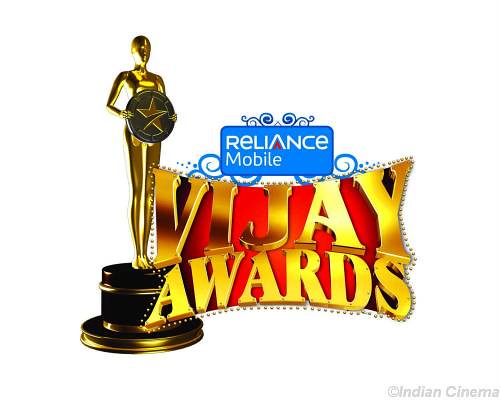There are plans and there are visions. While the former involves the laying down of foundations for experiments to materialise, the latter envisages the ultimate culmination of the entire cycle of events. The government's directive to achieve 20 million broadband subscribers by 2010 is an instance where the 'plan' fell short of the 'vision'. According to a report by E&Y and CII titled 'India 2012 Telecom growth continues' in 2007 (termed as the year of broadband) there were only 3.1 million broadband subscribers, increasing to 5.8 million by the end of 2008.
Going by the current growth rates, it is expected that there would be only 14 million broadband subscribers by 2010, missing the target by 6 million. In contrast mobile services are growing at a much faster rate, adding 15.41 million subscribers in January 2009 alone. As a result, takers for internet services are rising faster in the mobile segment than are for broadband services. "In India mobile broadband would be more popular," informs T Ramachandaran, DG, COAI. In an evolving society, even though such anomalies can be attributed to consumer preferences, the reason behind the failure of a cheaper service vis-a-vis an expensive alternative is still unexplainable.
"There is no denying about the potential of broadband in India, the problem is that we do not have any infrastructure and it would be futile to advertise when you can't deliver," informs an insider from Reliance Communications (RCOM). This fact can be well-illustrated by looking at the definition of broadband. Broadband is defined as an 'always on' data connection that is able to support interactive services, including internet access and has the capability of minimum download of 256 kilo bits per second (kbps) to an individual subscriber.
In sharp contrast to its capability, the Indian version delivers only 100 kbps. Also there are no real content that is available to the Indian users. Even if the logic pertaining to an increase in the consumer base holds true, it is hard to ignore the fact that it is actually not possible for the private sector companies to offer entire junket of broadband services in India. Despite the vast fibre optics that these operators have already laid, they still do not have the last mile covered. Additionally, these telecos require multiple permissions in order to dig and lay new fibre optic cables, a situation which is herculean if not impossible. The only player that has these end points covered is state-owned BSNL.
In the year 2004, Telecom Regulatory Authority of India (TRAI) had recommended that the state provider should unbundle these local loops in order to give access to the private players, but to no avail. The other option for connecting the fibre optical end points could be the introduction of WiMax but there are indications about the auctions being held before March 31, 2009 and it would be only by the beginning of 2010 that it would be functional.
"In the western countries, it is the cable wire that also delivers broadband, and the companies should be looking at making use of the cable wire that is going in every household to make broadband popular," informs, Sukanta Dey, president, emerging business, Tata Teleservices. It does sound as an innovative solution but is a misfit in the Indian context. "The cable broadband would require an integration of the broadband with the cable operators but as of now the cable sector itself is highly unorganised," explains, Prashant Singhal, Telecommunications Leader, Ernst &Young.
There are a great deal of synergies possible between cable and broadband as is seen in several developed markets where IPTV (a combination of these services) has gained much popularity. However, even though cable operators have fired all cylinders for market penetration, strangely broadband operators have remained numb. As a matter of fact even players like Sify and Hathway, which offer both broadband and cable while being around for quite some time, have not been able to do much in this direction.
Apart from these there are BSNL and MTNL who are offering triple play services but the lack of awareness of their offerings ensures that there are no takers. The telecom market leader has just entered this arena with the launch of its IPTV (available only in Delhi) and it is expected that it would undertake some form of branding exercise in order to increase awareness. Sagar Mahableshwar, national creative director, Redifusion Y&R, the agency for Airtel telecom service, reveals, "We are working on a campaign on broadband and it would be on air shortly."
Currently the only beneficiaries of broadband are the corporate and reaching these enterprises through TVC's may not be a very prudent idea. "As majority of clients for broadband are corporate, it makes sense to hard sell and up-sell products to them," informs Abdul Khan, Head, GSM, Tata Teleservices (Maharashtra). Also as broadband has a limited reach, telecos see value in talking to retail and other users through direct marketing. The high price of broadband services is also a major hurdle, where retail customers find affordability difficult. A corrective measure however can only be taken either after a government (TRAI) directive or more competition.
Going on a mass scale would only be a prudent decision when companies know that they are in a position to cater to the needs of the consumers. At this stage the biggest users of broadband are only corporate, since the return on investment from this segment is high, it makes sense for the telecom companies to talk to them directly at least for now. Also, by ensuring that a larger number of organisations use their broadband networks would also lead to more people being aware of the offerings, which are available under a single brand (Umbrella branding); as operators can make a mass impact about their brands virtually anytime, given their deep pockets and brand awareness. Nonetheless, since operators like Airtel are already looking at rolling out some commercials and even Tata Teleservices has hinted that it would be looking at branding seriously, the day is not far when we would see carpet bombing techniques being deployed for broadband; hopefully that would help in getting the Indian broadband on a 'visionary' path.
Courtesy - Televisionpoint.com
Monday, April 13, 2009
Subscribe to:
Post Comments (Atom)
















No comments:
Post a Comment